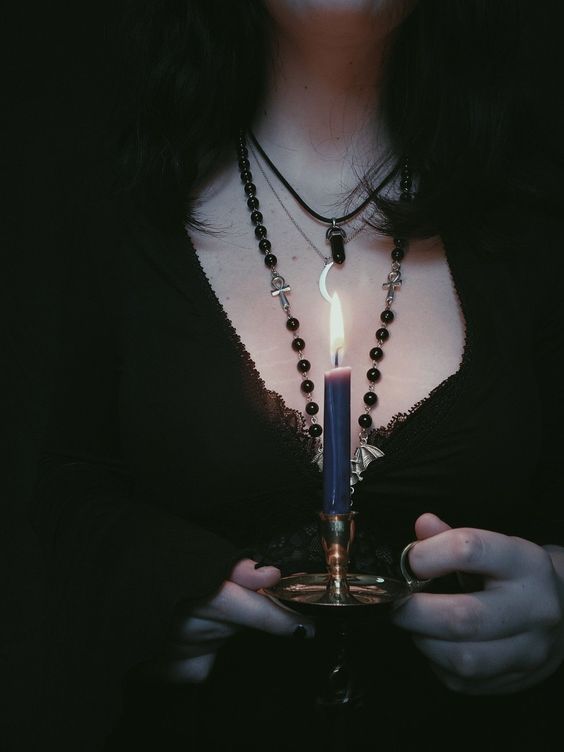Fire Signs (Intuitive Types) 🔥
Aries, Leo, and Sagittarius— To be of the fire element is to live in the realm of spontaneity and vision. Intuitive types don’t bother much with the tedious business of planning, preferring instead to feel where life’s heading, They’re the dreamers and the adventurers, willing to leap before they look, trusting that the universe will catch them—or at least make the fall interesting. Passion and inspiration are their fuel, and they burn bright… sometimes burning out, but always ready to reignite with the next big idea or quest.
Earth Signs (Sensation Types) 🌿
Taurus, Virgo, and Capricorn. Here we find those for whom life is best understood through the senses, by touching, tasting, building, and shaping. Earth signs are like the gardeners of the soul, content to cultivate a patch of reality, brick by brick, seed by seed. These are the folks who don’t just dream about the future—they blueprint it, build it, and put the roof on. They’re reliable, practical, with a touch of that earthy wisdom—like a tree that’s been around long enough to know which way the wind blows.
Air Signs (Thinking Types) 💨
Gemini, Libra, and Aquarius—the cerebral air currents that move through the world, questioning, pondering, and turning ideas inside out. Thinking types are the philosophers, the debaters, the curious minds that want to know why the universe is the way it is. They see life as a puzzle, each conversation a piece, and they thrive on new perspectives. Logic is their map, communication their compass, and they’re not so much interested in the destination as in the mental journey along the way. They’re the ones you want at your dinner party if you fancy a stimulating chat—just don’t ask them to remember where they put their keys.
Water Signs (Feeling Types) 💧
Cancer, Scorpio, Pisces—these are the souls who swim in the depths of emotion, where intuition meets empathy like two rivers merging into the sea. Feeling types are attuned to the unspoken, the undercurrents of the heart, sensing shifts in the emotional weather before anyone else even sees a cloud. They connect with others not through words or ideas but through vibes, moods, and silent understandings. To them, a conversation is less about the logic of what’s said and more about the subtly beneath. They’re the ones feeling life with a depth that might drown the rest of us, but which to them feels like home.
Finding Your Type
Arthur Dionne’s integration of Jungian thought with astrology offers a lens through which to see ourselves. Jung himself was fascinated by the mysteries of the mind and how the universe might mirror our psyche.
If you’re a fire-heavy soul, your challenge is to temper your blaze with a bit of practicality, lest you burn out or go off like a rogue fireworks display. For the earth types, there’s a call to sprinkle a little spontaneity into your structure—sometimes you’ve got to let the garden grow wild. Air types, maybe life is more than an endless quiz show—sometimes it’s okay to close the book and feel the breeze. And water signs, oh sensitive souls, perhaps a bit of logic and a lifeboat wouldn’t go amiss when the emotional tides get rough.
In Jung’s typology, these types can be further divided into introverted and extroverted:
Introverted Types: Introverts focus on their inner world and subjective experiences. They are more reserved and prefer to recharge through solitary activities. For introverts, personal values and emotions play a significant role in decision-making and understanding their surroundings.
Extroverted Types: Extroverts, on the other hand, are outgoing and sociable individuals who gain energy from interactions with others. They are more oriented towards external observations and objective data. Extroverted types are often on the move, seeking new experiences and interactions with the external environment.
Whether one leans out to the world or pulls inward, like the tide rolling in and out. It’s the eternal dialogue between “how do I fit into life?” versus “what does life mean to me?” Let’s delve into these contrasting viewpoints from Arthur Dionne’s book, teasing out the essence of both and how they reflect the subtleties of Jung’s introverted feeling.
How should I relate myself to the rest of the group’ (Extroverted) vs. ‘What does the group mean to me?’ (Introverted)
The extroverted mindset here is outward-looking, focused on interaction, on where one stands within the social constellation. It’s a sort of social calculus—measuring one’s position and role to ensure that the bonds are in harmony. The introverted perspective, on the other hand, sees the group as a reflection of the self’s deeper experiences. It’s less about social positioning and more about internal resonance. It asks: what inner chords are struck when I am amidst this collective? Does it sing to my soul, or does it jar?
Most bachelors over 40 will never marry’ (Extroverted) vs. ‘It depends on the individual’ (Introverted)
The extroverted stance leans towards generalizations, seeing the pattern in the broad, collective experience. It’s a data point in the social world, a statistic about how groups behave. The introverted approach, however, resists such sweeping declarations—it’s more attuned to the nuance, to the exceptions, to the peculiarities of each human story. Where the extrovert might seek to categorize, the introvert insists on the unique fingerprint of each life.
‘I ought to make an effort when the in-laws arrive’ (Extroverted) vs. ‘If I am not in, they miss me’ (Introverted)
Here, the extroverted thought shows a concern for external expectations, a sense of duty or responsibility to show up and participate, like a good player in the social game. It’s about adjusting one’s behavior to maintain the equilibrium of social interactions. The introverted thought, however, is more reflective. It suggests a sense of value in one’s presence—an internal acknowledgment of worth, a quieter understanding that relationships are built on the meaning of one’s being, not just their participation.
‘Television can often spoil the art of conversation’ (Extroverted) vs. ‘It depends what you’re watching’ (Introverted)
The extroverted view is focused on the collective experience—how television might shape society’s habits and communication. It’s concerned with the overall impact on the social art of dialogue. The introverted response, as always, pulls back into the personal realm, seeing the subjectivity of the experience. It seeks to differentiate, to explore how different types of content might affect one’s inner world uniquely, rather than making a blanket statement.
Jung’s Introverted Feeling: A World Within
Now, with these distinctions in mind, let’s home in on the introverted feeling (Fi) type—a character with a world that is hidden. For the introverted feeler, the world is a screen upon which inner experiences are projected, but the colors and shapes remain largely obscured to others. They experience life through an intensely personal lens, one that isn’t always visible to the outside world. To them, every interaction, every encounter, is less about the immediate exchange and more about the deeper ripple it sends through their inner waters.
Imagine the introverted feeler at a party—while the extrovert might mingle, adapting their style to the social flow, the introverted feeler might find themselves dwelling on the subtle tone of a comment or the way a certain glance made them feel. They’re less interested in adjusting to the crowd and more in deciphering the internal significance of the moment. Their feelings can run deep, like hidden springs, shaping their values and choices without needing external validation. The phrase “still waters run deep” is particularly fitting here because the introverted feeler’s external calm belies an inner landscape that’s rich with emotional currents. It’s like standing beside a tranquil lake, not realizing the depths below, teeming with unseen life. And that depth can be both a source of empathy and a barrier, as they struggle to articulate the emotional complexity that lies beneath their still surface. In a world that often celebrates the loud and the bold, the extroverted spark, the introverted feeler is a reminder of the power of quiet depths. They teach us that there is as much to be learned from silence as from speech, from reflection as from action. They embody the secret rivers flowing beneath the earth, carving out unseen pathways, carrying their own currents, their own stories, and their own mysteries.
Cancer
 The Cancerian heart is a tender, moon-touched soul wrapped in the armor of a crustacean shell. There’s no better symbol for introverted feeling than this astrological archetype. It’s a blend of deep, unspoken vulnerability hidden beneath a sturdy, sometimes prickly exterior. Like their symbol, the crab, Cancerians are masterful in the watery depths of emotion, retreating into their shells when the waters get rough or when the world becomes too overwhelming. But, once that shell opens—there lies a world of feeling. The shell is a perfect metaphor for how Cancerians relate to their emotions and to others. It’s both a shield and a safe place, protecting the inner world from the harshness of external judgments. They are highly selective about who gets to peek beneath that tough exterior. It’s as if they carry a private ocean inside, filled with swirling currents of memories, feelings, and intuitions, and they’re wary of letting just anyone swim in those depths. Yet, when they do find a safe space or a trusted confidant, they can become surprisingly expressive about their emotional needs. They aren’t afraid to demand emotional reciprocity once they trust someone. In this way, they embody a dual nature: reserved and private at first glance, but capable of powerful emotional communication when they feel genuinely seen and understood.
The Cancerian heart is a tender, moon-touched soul wrapped in the armor of a crustacean shell. There’s no better symbol for introverted feeling than this astrological archetype. It’s a blend of deep, unspoken vulnerability hidden beneath a sturdy, sometimes prickly exterior. Like their symbol, the crab, Cancerians are masterful in the watery depths of emotion, retreating into their shells when the waters get rough or when the world becomes too overwhelming. But, once that shell opens—there lies a world of feeling. The shell is a perfect metaphor for how Cancerians relate to their emotions and to others. It’s both a shield and a safe place, protecting the inner world from the harshness of external judgments. They are highly selective about who gets to peek beneath that tough exterior. It’s as if they carry a private ocean inside, filled with swirling currents of memories, feelings, and intuitions, and they’re wary of letting just anyone swim in those depths. Yet, when they do find a safe space or a trusted confidant, they can become surprisingly expressive about their emotional needs. They aren’t afraid to demand emotional reciprocity once they trust someone. In this way, they embody a dual nature: reserved and private at first glance, but capable of powerful emotional communication when they feel genuinely seen and understood.
Jungian Introverted Feeling and the Cancerian Nature
Introverted feelers, much like Cancerians, are constantly searching for the deeper emotional meaning behind their experiences. It’s not enough for them to simply feel; they seek to understand their feelings in a way that resonates with their inner truths. They don’t just experience love or sadness or joy; they contemplate the essence of those emotions, letting them reverberate within before choosing how to express them. This need for inner depth often means that Cancerians, like other Fi-dominant types, might process their emotions slowly. They don’t just skim the surface of a feeling and move on; they absorbing it over time. And during this process, they might become temporarily withdrawn, retreating into their shell until they’ve made sense of the emotional landscape they’re traversing.
Emotional Swings: Riding the Lunar Tides
Cancerians are ruled by the Moon, which astrologers say reflects their ever-changing emotional states. Like the Moon’s phases, they can wax and wane between extremes—one moment full and glowing with affection, the next, receding into a new moon state of introspection. This makes them incredibly sensitive to the ebb and flow of their own feelings and those of others. It’s as if they’re in perpetual conversation with the tides, feeling every shift and pull in their emotional world.
Their mood swings can be intense, but that’s because they feel everything so acutely. It’s not that they are inherently unstable; rather, they are just deeply attuned to the nuances of their internal weather. Like a sensitive barometer, they pick up on even the slightest shifts, which can be a blessing and a curse. The challenge is to find balance, to avoid being swept away by these waves or retreating so deeply into their shell that they lose touch with the shoreline altogether.
Craving Depth
Cancerians seek out bonds that allow for that same emotional depth they crave within themselves. It’s why they’re often drawn to roles that involve caregiving or emotional support; they find meaning in nurturing others and being nurtured in return. Superficiality is a cardinal sin in their book—they want conversations that matter, moments that linger, and feelings that resonate long after the interaction is over. Yes, they may be moody, and yes, they might retreat when things get too much. But beneath that defensive posture is a heart that beats with genuine empathy, longing for the kind of emotional connection that speaks directly to the soul.
Introverted feelers posses inner worlds brimming with emotions that run as deep, and you can’t always see the depths unless you dare to draw up the waters. Their quiet nature is less a rejection of others and more a careful guardianship of their inner realm. This guardedness naturally makes them a bit mysterious. They have a way of revealing only what is absolutely necessary, without giving away the full story. It’s not that they wish to be misunderstood—far from it! But the effort to translate the richness of their inner lives into everyday conversation can be difficult. So, they hold back, hoping that those who are truly attuned will take the time to understand what’s beneath the surface. However, there is a melancholy aspect to their nature, it is the weight that comes with caring so deeply. It’s a burden born of their emotional attunement and their unwavering loyalty to their core beliefs. When their ideals—those tender, carefully nurtured principles—are threatened or dismissed, it can feel like a personal injury, a wound to the very essence of who they are. This can spiral into periods of deep reflection and a profound sadness.
Witnessing injustice, cruelty, or betrayal, they don’t just see it; they feel it, as though a stone has been thrown into their calm emotional pond, sending ripples that cascade within them for ages. Their melancholy is the shadow side of their empathy, a natural response to the complexity and often the brutality of the world outside their introspective haven. But this very depth also gives them an incredible capacity for understanding pain—both their own and that of others.
The Gifts of Empathy and Understanding
Yet, their seeming remoteness is balanced by a deep sense of compassion. Introverted feelers are often like soft cushions for the bruised hearts of others. They listen, not just to the words but to the silences, to the feelings that linger unspoken. And because they are so aware of their own inner complexity, they tend to be non-judgmental, recognizing that everyone’s inner landscape is a terrain of its own. They have little interest in forcing their beliefs on others, because they know that what is true for one person’s soul might not necessarily resonate with another’s.
Their empathy is less about wearing their heart on their sleeve and more about offering a safe space—a quiet harbor where others can dock and rest without fear of judgment. When someone shares their struggles with them, they listen in a way that makes the speaker feel truly heard, as if their words have found a home. It’s a rare gift, to make someone feel that their inner world is seen and respected, even if the introverted feeler doesn’t always share their own thoughts with the same openness.
This capacity for acceptance and forgiveness comes from their refusal to judge people solely by their actions. They look beyond the surface to the intentions, the struggles, the context. In their ideal world, everyone would be seen for their true self, with all the messy, complex, and beautiful contradictions that entails. They value sincerity, striving to be as true to themselves as they wish others to be, even if that sincerity means showing up imperfectly.
The Heart of the Introverted Feeler
At their core, introverted feelers long for a world where authenticity is celebrated, where people connect on a level deeper than small talk and pleasantries. They yearn for relationships that aren’t just exchanges but close bonds, where mutual respect and understanding create a space for both parties to be themselves fully. They don’t want to be understood in the shallow sense—they want to be felt, to have someone recognize the deeper currents moving through them, even if they never manage to put those feelings into words.
Scorpio
 Scorpio is the zodiac’s brooding deep-sea diver, wrapped in mystery and magnetism. These enigmatic creatures are like the ocean’s abyss, where the light barely reaches, and what lies below is as awe-inspiring as it is unknown. Ruled by water, yet fixed in their nature, Scorpios embody a paradox: turbulent waters masked by an outward calm, like a storm brewing far below the surface of a placid sea. Scorpios are masters of emotional camouflage. Much like a shadowy figure in a noir film, they reveal just enough to keep things interesting but never the whole story. This reserved nature is not born from a lack of emotion—far from it! Scorpios feel everything deeply, intensely, as if their hearts are tuned to the low, rumbling frequencies of the earth itself. But, instead of broadcasting their feelings like a loudspeaker, they keep their cards close to their chest, revealing only what they choose, when they choose. It’s like they’re playing a perpetual game of emotional poker, and they rarely show their hand.
Scorpio is the zodiac’s brooding deep-sea diver, wrapped in mystery and magnetism. These enigmatic creatures are like the ocean’s abyss, where the light barely reaches, and what lies below is as awe-inspiring as it is unknown. Ruled by water, yet fixed in their nature, Scorpios embody a paradox: turbulent waters masked by an outward calm, like a storm brewing far below the surface of a placid sea. Scorpios are masters of emotional camouflage. Much like a shadowy figure in a noir film, they reveal just enough to keep things interesting but never the whole story. This reserved nature is not born from a lack of emotion—far from it! Scorpios feel everything deeply, intensely, as if their hearts are tuned to the low, rumbling frequencies of the earth itself. But, instead of broadcasting their feelings like a loudspeaker, they keep their cards close to their chest, revealing only what they choose, when they choose. It’s like they’re playing a perpetual game of emotional poker, and they rarely show their hand.
Why do they do this, you ask? For Scorpio, vulnerability is a dangerous thing—like the buried treasure that lies at the bottom of the ocean. To be vulnerable means to expose those depths to potential harm, and that’s not something they do lightly. So, they build a fortress around their feelings, a shell that’s thick, mysterious, and often impenetrable to those who don’t have the patience to get past it. This makes them appear aloof, even distant at times, but it’s really just a way to protect what is, at its core, a very sensitive and passionate nature.
Intensity and Cool Composure: The Scorpio Paradox
There’s another twist to the Scorpio tale: the ability to keep their cool, even when emotions run hot. Think of it like a volcano with a glacier on top—beneath the surface, there’s molten passion and intensity, but what you see is a calm, even icy exterior. This gives them a kind of steely composure, an unshakeable poker face that makes it almost impossible to guess what’s truly going on beneath the surface. It’s not that they don’t feel the emotions churning within them; it’s that they’ve mastered the art of holding those emotions in check, channeling them only when it’s most strategic.
It’s precisely this blend of intensity and restraint that makes Scorpio so intriguing to others. People can sense that there’s something potent lurking below, like a secret they’re dying to uncover—but good luck getting them to reveal it unless they’re ready. A Scorpio will often test others’ loyalty and intentions before letting them into their inner circle, ensuring that anyone who reaches their true self is worthy of the honor.
Emotional Depth: The Soul of Scorpio
Scorpios live for depth—shallow waters won’t do for these souls. They crave connections and experiences that reach into the intense and the meaningful, rejecting anything that feels superficial or insincere. Small talk? Not their thing. Scorpios want to dive deep, to explore the underwater caves of the mind and heart, and they respect others who are willing to take the plunge with them. They are drawn to the hidden, the shadowy, the things that other people shy away from exploring. Whether it’s the mysteries of human nature, the occult, or their own darkest thoughts, Scorpios are unafraid to go where others fear to tread.
This desire for depth is not always easy to satisfy in a world that often prizes surface-level appearances. It can leave them feeling isolated, misunderstood. This is why, when they do form a bond with someone, it tends to be an all-or-nothing affair—intense, consuming, and transformative. They don’t just want connection; they want to merge, to fuse souls and swim together in the hidden currents of emotion.
A Sign of Transformation
Scorpio’s association with transformation and rebirth further adds to their enigmatic nature. They are often likened to the mythical phoenix, burning up only to rise again from their own ashes. This is a sign that is unafraid of the dark—both the darkness outside and within. They understand that life is a cycle of death and rebirth, of shedding old skins to reveal new layers, and they are drawn to people and experiences that reflect this eternal process of change.
Scorpios can often seem like mind-readers, able to pick up on emotional undercurrents in a room with uncanny accuracy. They are finely attuned to the unspoken, to the shifts in tone, body language, and those little emotional ripples that most people miss. This makes them naturally compassionate—it’s hard not to care deeply when you’re so aware of the hidden struggles others might be going through. Their empathy is often of the unspoken variety, like a comforting presence in the midst of a storm. They can offer understanding without needing all the words, sensing where support is needed and how best to offer it. Yet, while they’re adept at entering into the emotions of others, they keep their own currents tightly controlled.
The catch here is that they don’t easily put their own vulnerabilities on display. The Scorpio’s instinct is to hold their feelings close, which otherwise could be damaged in the wrong hands. They wear their strength on the outside—a cool, unyielding exterior—but it’s partly a way to protect the more vulnerable parts of themselves. And so, people often perceive them as mysterious, as if there’s a locked door in the Scorpio’s heart with a “Do Not Disturb” sign. This creates a fascinating paradox: they understand others deeply, yet remain an enigma themselves.
Introversion and Scorpio’s Inner World
Now, when it comes to introversion, Scorpios naturally gravitate toward this way of being. They are more like the guardians of their own emotional fortress, retreating inside to process their experiences before they can share any part of that with others. It’s not that they don’t crave connection—they do, and often intensely so—but they need to feel safe before they open up those hidden chambers of their mind and heart. This tendency towards introspection is a way of recharging. Imagine a Scorpio dealing with life’s chaos like a diver exploring the ocean floor. They dive deep into their emotions, searching for meaning in the shadows, but just as a diver must resurface to breathe, Scorpios need periods of solitude to regain their strength. During these times, they sift through their feelings, analyze their experiences, and make sense of whatever turbulence they’ve encountered. Solitude isn’t loneliness for them—it’s a chance to regain their equilibrium and reconnect with their inner compass.
Finding Strength in Solitude
For many Scorpios, this internal retreat is not a sign of weakness or avoidance but a source of power. It’s where they confront their own shadows, where they come face to face with their deepest fears and desires. And through that process, they emerge with a kind of emotional resilience that others find both intriguing and intimidating. They don’t shy away from the darker aspects of life—instead, they seek to understand them, to master them. This makes them naturally introspective, drawn to self-examination and to questions that probe the very nature of existence.
This time alone also helps them guard their energy. So, they retreat, not out of a desire to cut themselves off, but because they know that being alone is sometimes the best way to maintain their inner balance. Not every emotion needs to be expressed in the moment, and some feelings are meant to be held, pondered, and only shared when the time is right. Mystery can be a form of power, and there is beauty in knowing yourself deeply even if the world doesn’t always understand you. For those willing to earn a Scorpio’s trust, to dive into those waters with them, the reward is a relationship that is as deep and enduring as the oceans they embody.
But make no mistake—Scorpios aren’t introverted because they don’t care about others. They care deeply, perhaps too deeply, and that’s precisely why they hold back. They know the power that vulnerability holds, both as a gift and as a potential wound, and they wield it wisely. For those willing to wade through the currents of their psyche, to respect their need for introspection, there’s a loyalty and depth that runs deeper than most will ever experience.
With Scorpio, here’s a lot to unpack here, like a suitcase stuffed with layers of mystery, passion, and that ever-present aura of enigma. Sometimes people think they’re hiding more than they really are. But the truth, as always with Scorpios, is more nuanced than that. One of the most defining traits of a Scorpio is their careful, almost surgical approach to trust. They don’t just throw their heart open to anyone who comes knocking—no, a Scorpio needs to be sure that the person they’re letting in is worthy of the keys to their inner realm. It’s not about being cold or detached; it’s about valuing their own emotional depths so much that they don’t want to share them lightly. In their world, trust is a sacred contract, not a handshake deal.
This discernment can make them appear aloof or withdrawn in social situations, especially when compared to those who are more naturally gregarious. A Scorpio might hang back, observe the dynamics, feel out the room before deciding where (or if) to engage. To some, this looks like distance; to a Scorpio, it’s just smart emotional management. Why spend energy where it’s not needed, or worse, where it might be taken advantage of?
The Reputation for Hidden Agendas: More Than Meets the Eye
The old Scorpio stereotype is that they’ve always got a hidden agenda. Well, not always, but let’s be fair: Scorpios can indeed be complex, with motives that don’t always make themselves obvious to others. They play their cards close to their chest, revealing only as much as they think is necessary. But this doesn’t necessarily mean they’re always plotting or that their intentions are sinister. Often, it’s more about self-protection and the desire to maintain control over their own story. For many Scorpios, being misread or having their motives questioned is just part of the territory. When you’re a sign that naturally gravitates towards privacy and introspection, people can mistake that for secrecy, imagining that there’s more going on behind the scenes than there actually is.
Some Scorpios can lean into that mysteriousness and use it to their advantage—who wouldn’t, when you’ve got that aura of intrigue? But more often than not, their “hidden” nature is simply their way of ensuring that their deepest thoughts and feelings aren’t laid bare for the world to scrutinize. Now, when a Scorpio sets their sights on something—or someone—there’s no holding them back. The same intensity that keeps them guarded also fuels their determination. It’s like the deep ocean currents, invisible on the surface but powerful enough to shape entire coastlines. Scorpios don’t just want something; they commit to it, fully, deeply, and with a focus that can be almost unnerving. They don’t mind the long game, don’t mind putting in the effort, because for them, it’s about the transformative process as much as the goal itself.
And when this focus is directed at a person, well, you can feel like you’re under a kind of emotional microscope—seen and understood in a way that can be both thrilling and intimidating. Scorpios have a way of making you feel like you’re the only person in the room, as if they’re unearthing some hidden part of you that even you might not have realized was there. It’s intense, it’s consuming, and it can feel like a force of nature. But for them, it’s all about connection. They’re not interested in dabbling; they want to plunge in, headfirst, with all the risks and rewards that might come with it.
Not All Scorpios Are the Same
It’s also worth remembering that while these traits are common, Scorpios are as varied as the waters they represent. Some might lean into that reputation for mystery and keep you guessing, while others may be surprisingly open once they feel they can trust you. Just as the ocean has shallow shores and hidden depths, so too do Scorpios have their own layers and nuances. Not every Scorpio is out to manipulate or control—many are simply looking for a space where they can be themselves without the pressure to explain every thought or feeling.
Their passion and drive can make them some of the most loyal and steadfast friends or partners you’ll ever have. Yes, they can be intense, but that intensity also means they care deeply, and they will stand by you when others might waver. And while they may keep certain aspects of themselves under wraps, those who earn their trust are often rewarded with a level of emotional authenticity that’s hard to find elsewhere.
The Power of Knowing What’s Worth Protecting
The Scorpio way of guarding their energy and being selective with trust isn’t just a defense mechanism—it’s an understanding of their own value. They know that what they have to offer, whether in relationships or in their personal passions, is deep and powerful. And they want to share that only with those who can truly appreciate it. They’re not stingy with their feelings; they just don’t believe in wasting them on those who don’t value the same depth.
Scorpios can seem reserved, selective, even secretive at times. But beneath that exterior is a heart that burns fiercely for what it cares about, a mind that is always searching for deeper meaning, and a soul that, when it finds the right place or person, will reveal itself in ways that are as transformative as they are unforgettable. If you’re willing to be patient, to respect their need for introspection and their desire for meaningful connections, you’ll find a partner or friend who is unwavering, passionate, and deeply sincere—someone who, once committed, is in it for the long haul.
When we attempt to overlay the framework of introverted and extroverted feeling onto zodiac archetypes, things don’t always fit neatly. Just as humans contain multitudes, so do the interpretations of these ancient symbols. Take Pisces, for example, and how it stretches the boundaries of what we might typically think of as an introverted feeling type.
Jungian Introverted Feeling vs. Extroverted Feeling: The Core Distinctions
In Jungian terms, introverted feeling (Fi) types are those who focus deeply on their internal emotional landscape. Their feelings are intense, but they tend to be directed inward, forming a private relationship with their emotions, values, and beliefs. It’s as if their emotional experiences are visible only to themselves, and rarely for others to see. They derive their sense of right and wrong from within, guided by an inner compass that aligns with their personal ideals. It’s not that they’re indifferent to the feelings of others, but their primary orientation is towards their own experience of the world.
On the other side, extroverted feeling (Fe) types are more outward-facing in their emotional engagement. They are finely attuned to the moods, needs, and expectations of their social environment, like conductors orchestrating the harmony between themselves and others. Their sense of fulfillment often comes from creating emotional resonance and connection within a group, seeking external validation and relational harmony. They express their feelings readily and adjust their behavior to maintain social equilibrium, like adjusting the sails to catch the prevailing winds of a room.
Pisces: A Bridge Between the Two Worlds
 Now, here’s where it gets fascinating with Pisces. This sign, often depicted as two fish swimming in opposite directions, embodies a duality that makes it hard to box into a strictly introverted or extroverted feeling category. Pisces, ruled by the dreamy and spiritual Neptune, is characterized by its capacity for deep empathy, sensitivity, and a yearning to merge with the larger part of life. They are the mystics of the zodiac, intuitively attuned to the emotional undercurrents that flow through individuals and the collective human experience. While Pisces certainly has that inward-facing, introspective aspect of feeling (much like Fi types), they’re not content to keep those feelings sealed up inside. Instead, they often find themselves swimming outwards, extending their compassion to others with an almost boundless reach. They feel the pain of others as if it were their own, and they have a tendency to absorb the emotional atmosphere around them, much like a sponge in the ocean. This creates a complex blend where their internal world is rich and nuanced, yet their emotional energy also spills out into the world around them.
Now, here’s where it gets fascinating with Pisces. This sign, often depicted as two fish swimming in opposite directions, embodies a duality that makes it hard to box into a strictly introverted or extroverted feeling category. Pisces, ruled by the dreamy and spiritual Neptune, is characterized by its capacity for deep empathy, sensitivity, and a yearning to merge with the larger part of life. They are the mystics of the zodiac, intuitively attuned to the emotional undercurrents that flow through individuals and the collective human experience. While Pisces certainly has that inward-facing, introspective aspect of feeling (much like Fi types), they’re not content to keep those feelings sealed up inside. Instead, they often find themselves swimming outwards, extending their compassion to others with an almost boundless reach. They feel the pain of others as if it were their own, and they have a tendency to absorb the emotional atmosphere around them, much like a sponge in the ocean. This creates a complex blend where their internal world is rich and nuanced, yet their emotional energy also spills out into the world around them.
A Broader Emotional Scope: Pisces’ Connection to the Collective
Whereas a classic introverted feeling type might be more self-contained, filtering their emotional world through their own values, Pisces reaches beyond the self to tap into the collective emotional currents. Their empathy isn’t just reserved for their closest relationships or those who have earned their trust; it extends to the broader human condition, often feeling drawn to those who are suffering or marginalized. For Pisces, it’s as if the boundary between their own feelings and the feelings of the world is porous, and this makes them capable of great acts of compassion and sacrifice.
This broader scope can seem like a departure from the typical Fi type, who might be more concerned with staying true to their personal ideals rather than feeling called to heal the wounds of society. Pisces can feel compelled to serve, to offer their sensitivity and compassion as a balm for the world’s sorrows. It’s not that they lack the introspective depth characteristic of introverted feeling—indeed, they can spend long hours delving into their dreams and spiritual musings—but they also have a deep desire to connect those inner experiences to something larger than themselves.
The Subtle Differences: Pisces and Introverted Feeling Types
While Pisces shares a tendency towards depth and introspection, Pisces’ emotionality is often more fluid, more adaptable, like a river that flows wherever it’s needed. Introverted feeling types can be like a wellspring—deep and focused on a particular ideal or value. They know what they stand for and may resist compromise on matters close to their hearts. Pisces, by contrast, is more like a river that bends and twists, seeking to blend with the ocean of human experience. They may struggle with defining themselves or setting firm boundaries, because their sense of self is more interwoven with the world around them.
This difference is what gives Pisces their reputation for being hard to pin down—they are, in many ways, always shifting between worlds, between their own dreams and the needs of those around them. It’s a sign that can embody both the introverted focus on the richness of their inner life and the extroverted impulse to share that sensitivity and empathy with others.
Pisces and the Depth of Human Feeling
If we think of Pisces as straddling the line between introverted and extroverted feeling, they become a symbol of how deep emotions can transcend the limits of individual experience. Empathy doesn’t have to be either strictly internal or external—it can flow back and forth, a tide that brings the outer world into the inner one, and vice versa. Pisces has a foot in both realms, and their struggles often revolve around balancing that inner sensitivity with the pull to engage compassionately with the world. Whether they’re retreating into their dreams or reaching out to comfort those in pain, Pisces embodies the truth that the deepest feelings are often the ones that connect us to the entire human story, reminding us that while we may be individuals, we’re all part of the same vast ocean.
Astrologer Liz Greene believes there are two types of any sign:
The extroverted version of any zodiacal sign tends to express himself out in the world. So the extroverted Aries finds challenges in the world, the extroverted Sagittarian explores the world, the extroverted Pisces projects his visions into the world and so on. The extroverted Virgo no doubt tries to apply his need to classify and order and synthesize at a worldly level. The introverted versions of the signs express their natures through an inner reality. So the introverted Capricorn is spiritually or psychologically ambitious, the introverted Sagittarian travels the boundless leagues of the mind and spirit, the introverted Pisces communes with the depths of his own inner ocean with its mysterious Denizens, and the introverted Virgo attempts to order and synthesize himself. Which means that the sink may well accumulate a truly ripe treasure trove of week-old dishes, the house may accumulate a formidable array of objects in general disarray, and the world may well go to pieces as far as Virgo is concerned- so long as he is performing that long, alchemical labor within the depths of himself? By Liz Greene – Astrology for Lovers











